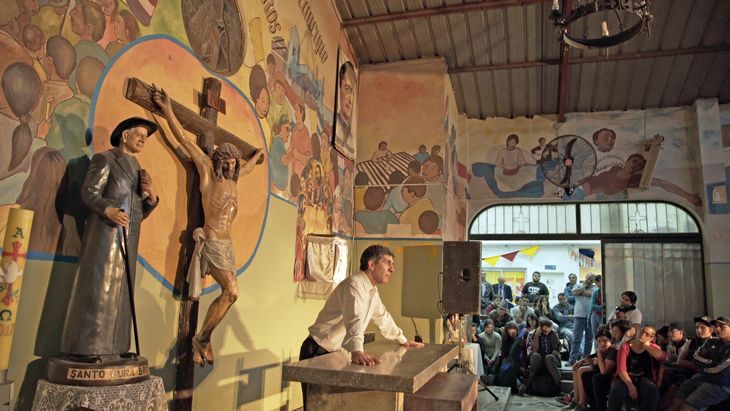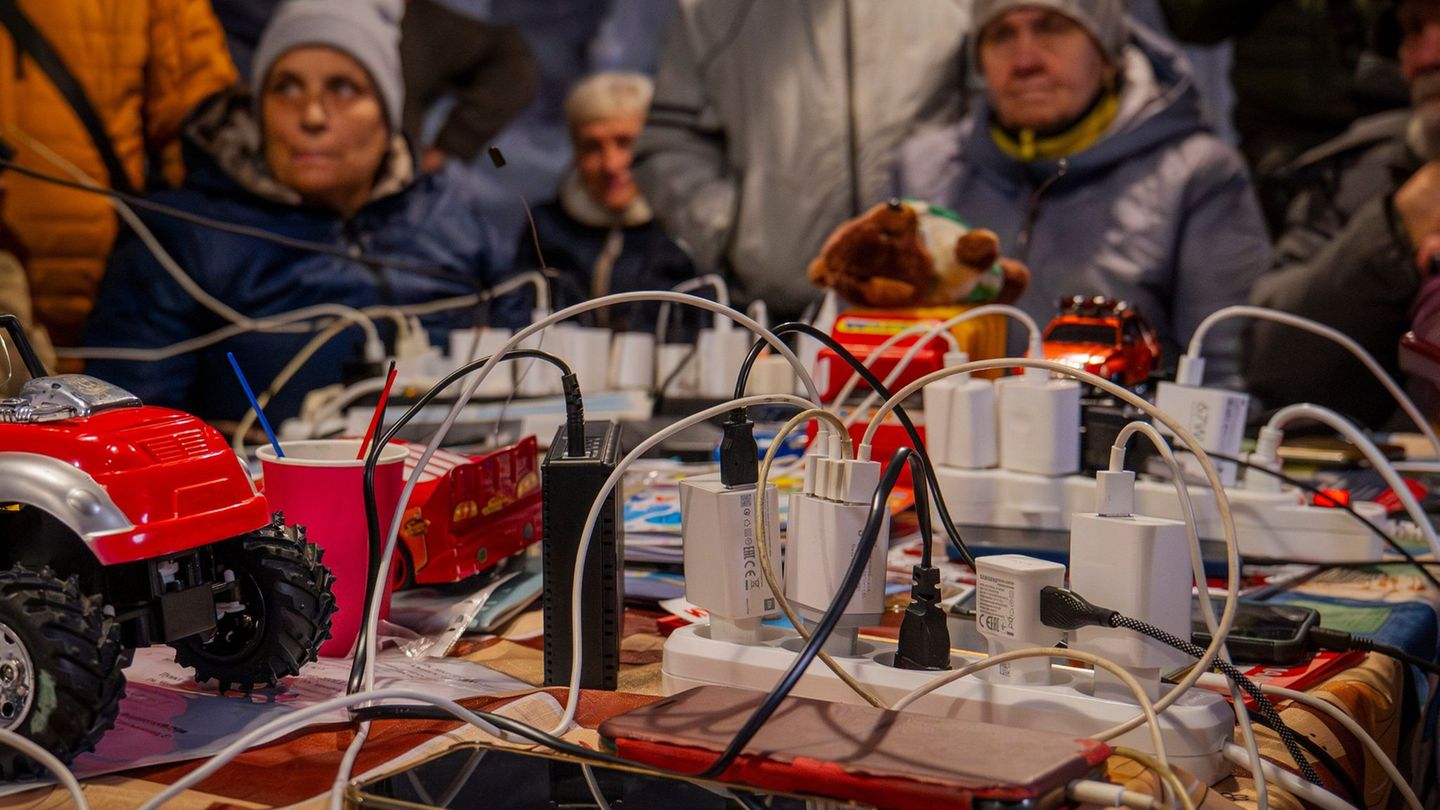“The historical moment in which Father Mugica lived, in its ideological, spiritual and social essence, unfortunately, is very valid today. “That generates sadness and commitment to put this work back together,” says Pablo Razuk, protagonist of “Father Charles, the fisherman king”, insight into father’s life Carlos Mugicawritten by Cristina Escofet and directed by José María Paolantonio, which was nominated for the ACE, Florencio Sánchez and Trinidad Guevara awards for authorship and winner of the Luisa Vehil for best performance. She received a mention from the Chamber of Deputies of the province of Buenos Aires and toured Barcelona, Paris and Veticano with Pope Francis. The work features the musicians Sol Ajuria and Miguel Gómiz on stage.
May 11 marks the 50th anniversary of the murder of Father Carlos and the play is presented every Friday at 7 p.m. at the Leónidas Barletta Experimental Space, former Teatro del Pueblo at Roque Saenz Peña 943. We spoke with Razuk.
Journalist: How did you prepare to play this character?
Pablo Razuk: I did a lot of research but I started twelve years ago, because the work has been released for ten years, there was no Google as complete as now, there was a lot to read, books, notes and the occasional video floating around. After they multiplied on YouTube with Mugica in action. I had done some research and I took the material to Cristina Escofet to write it and she told me that I didn’t need any of that. She knew the story firsthand because she had been active in the 70s. She had much more information than the political and social, she had the human. Paolantonio, the director, had also met Mugica so we began editing in a way he had never worked before. The first four or five rehearsals the only thing we did was chat, Cocho told me anecdotes, we read a bit of the text and he talked to me about climate issues in the ’70s, what was happening in the streets, in the rehearsals. All of this was vital for the composition of the character, added to my way of working, which is the obsessive search for how the characters that touch me vibrate in emotional and energetic terms. It took 7 to 8 months of thoughtful and meticulous work.
Q.: What milestones can you highlight from Mugica’s life present in the work?
PR: I always say that Mugica took the long road because he was one of the sons of a wealthy family where you have to be a doctor, lawyer, priest, soldier, with visions of right-wing people and from that place he was linked to the curia. He became a seminarian with a similar bond with conservative priests. He had planned the path he could have followed in the Vatican, but one day he opened the eyes of his heart, as he said, and saw that the church was not fully satisfying the needs of the people. . He began to be critical of the church and became one of the third world priests. He was an anti-Peronist, one of those who went to the plaza to ask that Perón leave the government until ’55 when he recognized that there is something there that is not consistent with love for one’s neighbor. From being anti-Peronist, he ended up being one of those who returned with Sorry on the plane from Spain. That longer path speaks of a man who ended up finding a destiny, leading many people and helping. He is one of the organizers of neighborhood 31.
C0156.00_24_21_22.Still008.jpg
Q: What lesser-known trait can you highlight?
PR: He was passionate about football, Racing. According to his friend, Pablo Capelli, with whom he suffered the shooting while Capelli was saved, Mugica was a beast at soccer, he was one of those who messed up badly. He was a priest and passionate about the game.
Q: How is the placement structured in this one-person company?
PR: This is not the first one I do, I did Severino, Germán Abadala, Federico García Lorca, it is something I have been working on for a long time but Mugica was the second and it is not entirely one-person because I am accompanied on stage by Sol Ajuria on vocals and Miguel Angel Gomis on cello . With Paolantonio we thought that it could not be a work where the actor was on stage distanced from the spectator, like on the altars, like in the most traditional masses. Mugica was about rolling up his sleeves and going door to door adding service to those who needed it. He could go to assemblies, neighborhood meetings, say mass in a chapel or in the middle of the street. The character had to leave that place and the entire theater had to become that church ceremony. The production enjoys a lack of limits in theatrical terms.
Q: How did the work grow from paper to stage?
PR: The author has the ability to be philosophical and to tell the story almost as a chronological and journalistic review filtered by personal and period poetics. There were more than 40 pages so we found a synthesis that took a first assembly, we left it in an hour and seven minutes. The work is going through a moment of maturity and is representative of a historical moment that in its ideological, spiritual and social essence, unfortunately, is very valid today. That generates sadness and commitment to put it back together.
Q.: What can you say about this moment that you call “regrettable”?
PR: Historically, Argentine culture was curtailed by outside powers that did not allow us to have our Hollywood. When we took off in cinema we were boycotted, when we took off in tango and folklore it was boycotted and we were inundated with foreign music. Every time Argentina tried to compete with the great country to the north there were always capitals that were responsible for cutting off our legs. The current government does not understand culture, they are not only right-wing but brutal, they do not understand social conscience, the needs of others and they manage an exacerbated commitment to individualism. They talk about personal freedom, there is no consciousness of homeland, people, flag. Culture is a direct instrument for community and debate. There is no love for one’s own, the neighborhood, the country, the riches, the flag, the musicians, the scientists. They do not understand culture and they are accompanied to finish destroying that wonderful strategy that is art. It is a lost battle for them because theater, music, dance, letters, have always known how to seep like water on the ceiling and have wet all those who have wanted to drown those words. We will find the way out to tell our vision of the truth and we will generate the paths to meet again with that other artist and spectator. We will be a community again.
Source: Ambito
I am an author and journalist who has worked in the entertainment industry for over a decade. I currently work as a news editor at a major news website, and my focus is on covering the latest trends in entertainment. I also write occasional pieces for other outlets, and have authored two books about the entertainment industry.




